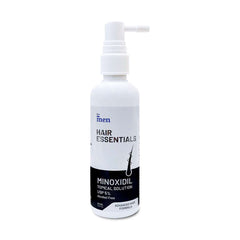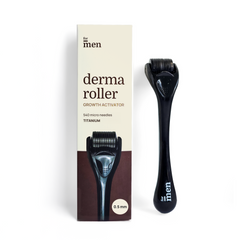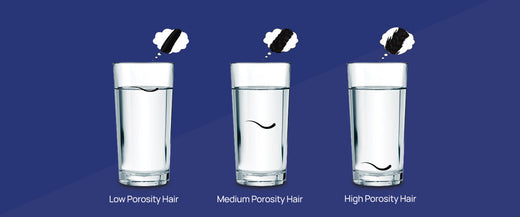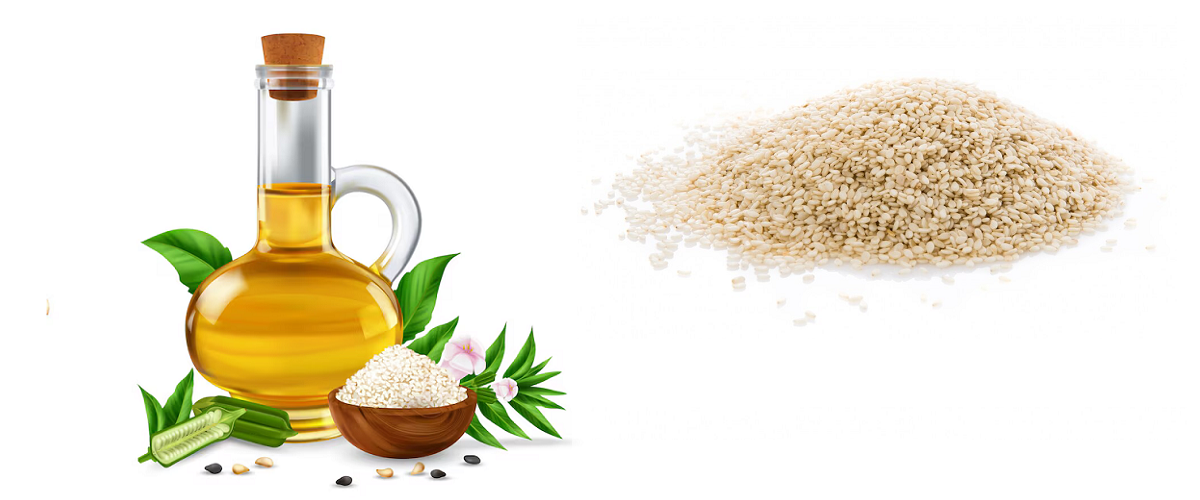Castor Oil Benefits for Hair, Beard and Health
Evidence Based
All the information in this blog post is accurate, trustworthy, scientifically based and has been written and fact-checked by our experts and doctors.
Our licensed nutritionists and dietitians are committed to being objective, unbiased and honest, presenting all sides of the argument.
This article includes scientific references in brackets, which are clickable links to research papers from reputable academic organizations.

Castor oil is a vegetable oil that is derived from the seeds of the castor oil plant, scientifically known as Ricinus communis. It's a pale yellow liquid with a distinct taste and odor. Castor oil has been used for various purposes for centuries, including medicinal, industrial, and cosmetic applications.
The idea that castor oil can promote hair and beard growth has been a popular belief for a long time, but the scientific evidence supporting this claim is limited and often anecdotal.
Let's delve into the details.
Castor Oil for Hair Growth:
Castor oil contains a compound called ricinoleic acid, which is believed to have anti-inflammatory and antimicrobial properties. Some proponents suggest that applying castor oil to the scalp can improve circulation, reduce inflammation, and promote hair growth. However, there is a lack of rigorous scientific studies to conclusively prove these claims.
While there are a few small studies and reviews that suggest castor oil might have a positive effect on hair growth, the evidence is not robust enough to make definitive claims. Many factors contribute to hair growth, including genetics, hormonal balance, diet, and overall health.
Castor Oil for Beard Growth:
Similarly, the idea that castor oil can promote beard growth is based on the belief that its potential benefits for hair growth might extend to facial hair. The same compounds in castor oil that are thought to stimulate hair growth on the scalp could theoretically have a similar effect on beard hair follicles.
However, there is very limited scientific research specifically focused on castor oil's effect on beard growth. The effectiveness of castor oil for promoting beard growth remains largely anecdotal and lacks rigorous scientific validation.
How Castor Oil Helps Hair Growth and Beard Growth? (Scientific Proof)
There is a notable absence of large-scale, well-designed clinical trials that definitively prove castor oil's efficacy for hair and beard growth. Most of the existing evidence is based on small studies with limitations and user testimonials.
While castor oil might offer some benefits for moisturizing the hair and skin, its role in promoting significant hair or beard growth is uncertain. Factors like genetics, hormones, and overall health play a significant role in hair growth, and no single ingredient or oil can guarantee substantial growth.
Other Benefits of Castor Oil:
1. Castor Oil for Skin Care:
Castor oil can be used to moisturize and nourish the skin. It is often used as a natural remedy for dry skin, chapped lips, and rough patches. It can also help in reducing the appearance of scars and stretch marks due to its emollient properties.
2. Laxative:
Castor oil is known for its strong laxative effects. It's sometimes used as a natural remedy for constipation. However, its use as a laxative should be done with caution and under medical supervision, as it can lead to discomfort and dehydration if not used properly.
3. Castor Oil as Massage Oil:
Due to its viscosity and moisturizing properties, castor oil can be used as a massage oil to relieve muscle tension and promote relaxation.
4. Castor Oil for Joint Pain Relief:
Castor oil packs, when applied to painful joints, can provide relief from conditions like arthritis and joint inflammation. The heat-retaining properties of the oil may help ease discomfort.
5. Castor Oil for Fungal Infections:
Castor oil contains antifungal properties that may help treat fungal infections like athlete's foot or ringworm. It can be applied topically to the affected area.
6. Castor Oil for Wound Healing:
Castor oil has been used historically to aid in wound healing. Its anti-inflammatory and antimicrobial properties can potentially help prevent infections and promote healing.
7. Castor Oil for Moisturizing Cuticles:
Applying a small amount of castor oil to your cuticles can help keep them moisturized, preventing dryness and promoting healthy nail growth.
8. Castor Oil as Eyelash and Eyebrow Conditioning:
Similar to its effects on hair and beards, castor oil can be applied to eyelashes and eyebrows to promote growth and improve their overall appearance.
9. Castor Oil as Natural Lubricant:
Castor oil can be used as a natural alternative to petroleum-based lubricants for various purposes, including household tools, machinery, and even as a personal lubricant.
10. Castor Oil for Inflammation Relief:
The anti-inflammatory properties of castor oil may help reduce redness and swelling in inflamed areas when applied topically.
11. Castor Oil for Sunburn Relief:
Applying castor oil to sunburned skin can help soothe the discomfort and promote healing.
12. Castor Oil for Mole and Skin Tag Removal:
Some people use castor oil to attempt to remove moles and skin tags. However, it's important to consult a medical professional before attempting any form of self-treatment.
Side Effects of Using Castor Oil:
When used improperly or in excess, there can be some potential side effects of castor oil:
1. Gastrointestinal Distress:
One of the most common side effects of castor oil is gastrointestinal discomfort, including nausea, vomiting, cramps, and diarrhea. This is due to its strong laxative properties, which can lead to rapid bowel movements and potential dehydration.
2. Dehydration:
Excessive use of castor oil as a laxative can lead to dehydration due to the loss of fluids through diarrhea. It's important to drink plenty of water if you're using castor oil for its laxative effects.
3. Allergic Reactions:
Some individuals might be allergic to castor oil, which can lead to skin irritation, redness, itching, and even rashes when applied topically.
4. Skin Irritation:
Even for those who aren't allergic, using castor oil on the skin can sometimes cause irritation or redness, especially if the oil is left on for an extended period.
5. Abdominal Cramps:
Along with diarrhea, castor oil's laxative effects can cause abdominal cramps and discomfort.
6. Electrolyte Imbalance:
Frequent or excessive use of castor oil as a laxative can lead to an imbalance of electrolytes in the body due to fluid loss.
7. Pregnancy Concerns:
Pregnant women are generally advised to avoid using castor oil as a laxative, as it can potentially induce contractions and lead to premature labor.
8. Digestive Upset:
Ingesting castor oil can lead to digestive upset, including bloating, gas, and general discomfort.
9. Mild Dizziness:
Some individuals might experience mild dizziness or lightheadedness after using castor oil, particularly if it causes rapid bowel movements and fluid loss.
10. Eye Irritation:
When using castor oil for eyelashes or eyebrows, there's a possibility of getting the oil in the eyes, which can cause irritation and discomfort.
11. Aspiration Risk:
Swallowing castor oil accidentally, especially in larger amounts, can lead to aspiration pneumonia, a lung infection caused by inhaling foreign substances into the lungs.
It's important to use castor oil in moderation and follow guidelines for its safe use. If you're considering using castor oil for any purpose, especially for internal consumption, it's recommended to consult with a healthcare professional to ensure that it's appropriate for your individual health circumstances. If you experience any adverse reactions or discomfort while using castor oil, discontinue use and seek medical attention if necessary.
Also Read the Articles:
Disclaimer: The information provided on this page is not a substitute for professional medical advice, diagnosis, or treatment. If you have any questions or concerns about your health, please talk to a healthcare professional.
 Evidence Based
Evidence Based







Leave a comment